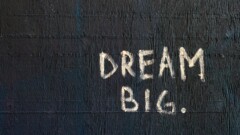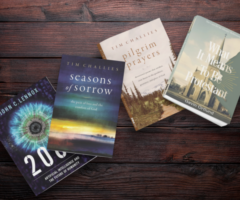I want to be good at good. In fact, I want to be an expert in good. At least, I do when I’m at my best. But in moments of introspection I see a real interest in evil as well. These desires battle within me, the desire to fill my mind with good and the desire to fill my mind with evil.
As Paul came to the end of his great letter to the church in Rome, he gave some final instructions and warnings about false teachers and their ability to deceive believers with their flattery and smooth words. And then he warned the Christians “to be wise as to what is good and innocent as to what is evil” (Romans 16:19b). J.B. Phillips paraphrases it well: “I want to see you experts in good, and not even beginners in evil.”
I guess Paul knew there might be a temptation for those Christians to grow so concerned about evil, that they would spend all their time studying it. They would assume that the best way to guard their faith would be to obsess about false, evil doctrine. But inevitably, their study of evil would lead them to think evil thoughts and even do evil deeds. Evil is powerful that way—too powerful to be immersed in for any length of time. And so Paul warned them, in the face of waves of false teaching and other dangers, to focus the best of their attention on what is good and pure and lovely. They should study the truth and then allow what is false to stand out in contrast.
Don’t study false doctrine, don’t study sin, don’t study error, stick with the truth and godly obedience.
We can take Paul’s instruction at face value: as a plea to avoid obsessing about false doctrine. John MacArthur applies the text in this way: “Don’t study false doctrine, don’t study sin, don’t study error, stick with the truth and godly obedience.” It is well and good, I think, to have some familiarity with some of the most common false teachings and false teachers. We do well to know why we are not Mormons or Roman Catholics or why we believe same-sex marriage is wrong. But it can be dangerous to immerse ourselves in false teachings and false teachers. It can be dangerous to assume that we need to have a deep understanding of error in order to hold fast to what is true.
I think we can expand Paul’s instruction as well, to think about the way we live. Are you an expert in good? Or are you an expert in evil? Are you known for your interest in what is good? Or are you known for your interest in what is evil? Think of what you read when you’re browsing online. Think of the books and television you enjoy. Think of your last 100 Facebook posts. Do you love good, or are you mesmerized by evil?
John Stott says this: “To be wise in regard to good is to recognize it, love it and follow it.” Do you recognize what is good, and find that it stirs your heart, and motivates you to pursue it? Do you love to tell others about the good you have seen, the good you have learned, the good you have done? Stott continues: “With regard to evil, however, he wants them to be unsophisticated, even guileless, so completely should they shy away from any experience of it.”
Enjoy what is good, not evil. Watch what is good, not evil. Ponder what is good, not evil. Dream of what is good not evil. Read what is good, not evil. Use social media to celebrate what is good instead of bemoan what is evil. Most of all, do what is good, not evil. And consider John Piper’s plea: “O how many pangs you young people will spare yourselves if you don’t make any beginning in evil. There is evil enough in your own heart for Christ to deal with. You don’t need to burden him with more.”
Photo credit: Shutterstock










